What’s your experience with rising costs for healthcare and medicine?
The number and price of new treatments for cancer and other genetic diseases have skyrocketed over the last few years, straining health systems and insurers everywhere, including in Switzerland.
Some health insurers are refusing to reimburse medicine because it’s so expensive, others are stuck in long negotiations, delaying access to treatment for patients. Some parents are borrowing money from family members or launching crowdfunding campaigns to pay for a life-saving drug for their children.
How has this impacted you? What do you think should be done to make medicine more accessible? What should pharmaceutical companies do?
From the article The end of affordable medicine
Shortage of medicines
The biggest problem with the supply of medicines in Switzerland and other European countries stems (as one of the people you spoke to mentioned) from the fact that the manufacturer's margins are increasingly limited, if not totally insufficient to cover production costs and expenses. But in Switzerland, there is another major factor: how can it be acceptable for pharmacists and distributors to put 3 times the price paid to the manufacturer in their pockets when the manufacturer assumes and covers 100% of the costs of production, transport, registration and review of the drug, taxes directly linked to sales, etc.? What's more, the pharmacist can charge the patient a supplement for packs costing less than CHF 10.00 paid over the counter, as well as a pseudo-compensation for the advice given, even though the package leaflet is becoming longer and more complete, resembling that of a specialist.
As a result, a medicine invoiced by the manufacturer to the wholesaler at CHF 2.23 will cost the patient and the health insurer CHF 11.65 plus the pharmacist's allowances + the dosage label + the advice fee, which will be partially or fully invoiced to reach a price of around CHF 20.00, i.e. in this case almost 10 times the manufacturer's price!
- In Europe, the margins of the market players are practically the same, which largely explains the price difference; in our example, the drug would be sold for CHF 6.75 + VAT, which varies from one country to another, i.e. between CHF 7.45 and CHF 8.00.
You will therefore understand that unless the manufacturer has a monopoly, i.e. a large volume of sales, it is no longer interested in producing the drug in question. This applies to at least half of the missing medicines, including syrups, first-generation antibiotics, oral antidiabetics, certain anxiolytics, eye preparations and many paediatric medicines.
Another determining factor is the new generation of doctors, who are much more inclined to prescribe newer drugs rather than generics, because at source (i.e. in hospitals) generics are still not in the public eye. If a generic does not cover all dosages and galenic forms, it has no chance of appearing on a hospital list, even though not even a third of the forms and dosages are regularly prescribed.
As far as the patient is concerned, he or she is wrong to insist on a drug being admitted to the health insurance fund when, as stated in your article, a large proportion of drugs used in the short term cost less than CHF 15.00. And if we bear in mind that a patient's deductible is at least CHF 500, what's the point of demanding that a short-term treatment be admitted to the health insurance fund?
In my opinion, excluding all preparations costing less than CHF 20.00 from the OFAS list of medicines would be beneficial, firstly to give manufacturers a renewed incentive to produce without constraints, and secondly to encourage competition not only on selling prices but also on marketing proposals, especially for so-called "seasonal" medicines.
Médicaments en manque
Le plus grand problème de l'approvisionnement de médicaments en Suisse et d'autres pays européens provient (comme l'a évoqué l'un de vos interlocuteurs) du fait que le fabricant a des marges de plus en plus restreintes voire totalement insuffisantes pour couvrir ses frais de production et ses charges. Mais en Suisse un autre facteur majeur existe, comment est-ce tolérable que le pharmacien et le distributeur se mettent 3 fois le prix payé au producteur dans leur poche alors que le producteur assume et assure à 100% les coûts de production, de transport, d'enregistrement et de révision du médicament, les taxes directement liées à la vente, etc... Et en sus le pharmacien peut facturer au patient un supplément pour les emballages de moins de 10.00 CHF payés au comptoir et encore un pseudo-dédommagement pour le conseil donnée alors que la notice d'emballage devient à chaque plus longue et plus complète se rapprochant de celle du spécialiste.
Si bien qu'un médicament facturé au grossiste 2.23 CHF par le fabricant coûtera au patient et à la caisse-maladie 11.65 CHF plus + les indemnités du pharmacien + l'étiquette de la posologie + la taxe de conseil qui seront partiellement ou complètement facturés pour atteindre le prix d'environ 20.00 CHF soit dans ce cas près de 10 fois le prix du fabricant !
- en Europe, les marges des acteurs du marché sont pratiquement les mêmes, ce qui explique en grande partie la différence de prix ; dans notre exemple le médicament serait vendu au prix 6.75 CHF + la TVA qui varie d'un pays à l'autre soit entre 7.45 et 8.00 CHF.
Dès lors vous comprendrez qu'à moins d'avoir un monopole, c.à.d. un volume important de ventes, le fabricant n'est plus du tout intéressé à produire le médicament en question. Et cela concerne au moins la moitié des médicaments manquants dont en particulier, les sirops, les antibiotiques de premières générations, les antidiabétiques oraux, certains anxiolytiques, les préparations oculaires, et de nombreux médicaments pédiatriques.
Un autre facteur déterminant concerne la nouvelle génération de médecins nettement plus encline à prescrire les médicaments récents plutôt que des génériques et ce parce qu'à la source (c.à.d en milieu hospitalier) les génériques ne sont toujours pas en odeur de sainteté. Si un générique ne couvre pas tous les dosages et toutes les formes galéniques, il n'a aucune chance de figurer sur une liste hospitalière alors que même pas le tiers des formes et dosages sont prescrit régulièrement.
Pour ce qui concerne le patient, son tord est de vouloir absolument à ce qu'un médicament soit admis aux caisses-maladies alors que comme il est exprimé dans votre article, une grande part des médicaments utilisés à court terme coûtent moins de 15.00 CHF. Et si l 'on tient compte que la franchise d'un patient est d'au minimum 500 CHF à quoi bon pour un traitement de courte durée vouloir exiger cette admission aux caisses.
A mon avis, le fait d'exclure de la liste des médicaments de l'OFAS toutes les préparations inférieures à 20.00 CHF serait bénéfique d'une part pour redonner envie au fabricant de produire sans contrainte et d'autre part pour faire jouer la concurrence non seulement sur le prix de vente mais aussi sur les propositions de mise sur le marché et ce surtout pour les médicaments dits "saisonniers".
The healthcare market is a monopoly market. There is always someone who pays. So that it is not noticeable that it is the people, one switched the obligatory health insurance companies in between. Thus, no one is interested in saving money. The health care providers and pharmaceutical companies are not. The health insurance companies also not, they can simply increase the premiums. Some patients also want something for their premiums for once. After the elections, many politicians mutate from representatives of the people to representatives of the interests of the health care market.
The most impudent, however, are the pharmaceutical representatives who want to justify certain drug prices with the additional benefit of a year of life gained. This is not only an impertinence, it is also morally reprehensible.
The pharmaceutical companies should have to disclose their development costs for drug development plus production costs plus margin. Otherwise, drug prices will continue to skyrocket.
Der Gesundheitsmarkt ist ein Monopolmarkt. Es ist immer jemand da der bezahlt. Damit es nicht auffällt dass es die Menschen sind, hat man die obligatorischen Krankenkassen dazwischen geschaltet. Somit ist niemand interessiert zu sparen. Die Gesundheitsdienstleister und Pharmakonzerne nicht. Die Kassen auch nicht, sie können einfach die Prämien erhöhen. Manch ein Patient will auch einmal etwas für seine Prämien. Viele Politiker mutieren nach den Wahlen vom Volksvertreter zu Interessenvertreter des Gesundheitsmarktes.
Am unverschämtesten sind allerdings die Pharmavertreter welche gewisse Medikamentenpreise mit dem Mehrnutzen für ein gewonnenes Lebensjahr rechtfertigen wollen. Dies ist nicht nur eine Unverschämtheit es ist auch moralisch verwerflich.
Die Pharmakonzerne sollen ihre Entwicklungskosten für die Medikamentenentwicklung offenlegen müssen plus Produktionskosten plus Marge. Ansonsten werden die Medikamentenpreise weiter explodieren.
i see a lot of people who, because they can't afford it, take out insurance with low premiums and high deductibles. so they never see a doctor or buy drugs. all this money goes into the coffers and increases the profits of the health insurance companies. we're one of the few countries where insurance is compulsory and people have to feel guilty about using the medical system. In addition, we enfranchise and disempower our citizens by requiring them to go to the doctor to obtain a prescription for a common drug. This generates double the costs. We should have a single state-run fund.
premiums are rising and the number of subsidies is increasing in due proportion.
insurance companies are making huge profits and our politicians are supporting this impoverishment of the population by taking us for idiots. And all this in a constitutional state that advocates democracy.
it's revolting !!!!
je vois beaucoup de personnes qui par manques de moyens souscrivent des assurances avec des primes basses et des franchises hautes. donc, ils vont jamais voir des médecins ou achètent des médicaments. toute cette argent rentre dans les caisses et augmentent les bénéfices des caisses maladies. ont est un des peu de pays ou les assurances sont obligatoires et ou les gens doivent se sentir coupables d utiliser le système médical. En autre, ont enfantilise et deresponsabilise les citoyens en devant aller consulter pour avoir une ordonnance pour pouvoir s acheter un médicament courant. Cela génère le double des coûts. ont devrait avoir une seule caisse géré par l état.
les primes augmentent et le nombre de subside augmentent dans la juste proportion.
les assurances font de gros bénéfices et nos politiciens cautionnement cet appauvrissement de la population en nous prenant pour des idiots. Et le tout dans un état de droit qui prône la démocratie.
c est révoltant !!!!
Thank you for your feedback. On the topic of a single insurer, this might be of interest. [url]https://www.swissinfo.ch/eng/majority-of-swiss-want-single-national-health-insurer--survey-finds/48860512[/url]
In other words, the first question is: do we need this medical and pharmaceutical arsenal to stay healthy? The slightest complaint and we're off to the doctor, while overconsumption of sugars and fats does the rest.
To stop increasing medical costs indefinitely, the very first measure is a generalized policy of prevention, education in sobriety and national action to depollute chemicals, from fields to energies, including all the leading products of the chemical industry.
Just one measure: an urbi et orbi campaign to teach people to stay healthy and use alternative medicines, which can produce excellent results. Of course, they don't make Big Pharma rich....
Vous êtes en train de prendre le problème à l'envers, autrement dit la première question est : avons nous besoin de cet arsenal médical et pharmacéutique pour rester en bonne santé ? Le moindre bobo et on court chez le médecin, la surconsommation des sucres et de graisse font le reste.
Pour cesser d'augmenter indéfiniment le coût médical la toute première mesure est une politique généralisée de prévention d'éducation à la sobriété et une action nationale de dépollution chimique, depuis les champs jusqu'aux énergies en passant par tous les produits phares de l'industrie chimique.
Donc une seule mesure : une campagne urbi et orbi pour apprendre à rester en bonne santé et utiliser les médecines alternatives qui peuvent donner d'excellents résultats. Evidemment elles n'enrichissent pas Big Pharma....
Some people definitely need a medical and pharmaceutical arsenal.
I do not drink alcohol or smoke. I am as active as possible and eat well. However, I suffer from a chronic disease. My "medical and pharmaceutical arsenal" allows me to continue to be a productive member of society.
The plant based medicines actually show little efficacy.
Insurance companies in recent years have increased disproportionately, it would be interesting to go and look at their investments and the returns on these and also the fees that directors receive
Le assicurazioni in questi ultimi anni sono aumentate in modo sproporzionato, sarebbe interessante andare a vedere i loro investimenti e le rese su questi ed inoltre i compensi che gli amministratori percepiscono
Absolutely, healthcare is an issue that involves healthcare providers, patients and insurers alike. Often forgotten in the equation, the latter have an extremely important role and responsibility in relation to the situation we currently find ourselves in. Their operating costs, their profitability... their incentives to drive down healthcare costs... Let's hope that future reforms will involve them in the same way as other stakeholders.
Absolument, la santé est une thématique qui implique prestataires de soins, patients mais aussi assureurs. Souvent oubliés dans l'équation, ces derniers ont un rôle et une responsabilité extrêment importante en lien avec la situation dans laquelle nous nous trouvons actuellement. Leurs frais de fonctionnement, leur rentabilité,...leurs incitatifs à faire baisser les coûts de la santé... Espérons que les réformes à venir les impliqueront au même titre que les autres parties prenantes.
The cost of 'free enterprise'...the freedom to charge anything with no controls, no ethics, no morals...
I find that the problem has been dragging on for at least 3 years now, at least as far as I am concerned. I always have quite a bit of difficulty finding statins, eventually having to turn to the much more expensive original drug, which the health insurance company makes i contribute 20%, but if the generic is not available in any form or, worse I am offered to take 2 instead of 1, since the problem has been dragging on for several months, indeed years, why do I have to spend more?
Trovo che il problema si stia ormai trascinando da almeno 3 anni, almeno per quello che mi riguarda. Ho sempre parecchie difficoltà a reperire statine, alla fine mi sono dovuto rivolgere al ben più costoso farmaco originale, che la Cassa malati i fa contribuire al 20%, ma se il generico non è disponibile in nessuna forma o, peggio mi viene proposto di prenderne 2 al posto di 1, visto che il problema si protrae da diversi mesi, anzi anni, perché devo spendere di più?
My Swiss wife and I pay $ 428:38 US per month for a medigap policy to supplement our Medicare geezer government health insurance which together still doesn't cover all our necessary health care costs. This is the best we can do in Trumpsterland. However we do have access to local organic and better than organic fair trade food. It's cheaper than chemo-therapy, and together with fewer carcinogens up here deep in the North Cascades mountains, or so called "American Alps," we hopefully won't have to move back to now overcrowded and polluted Switzerland. Most can't afford to be healthy, because they worship money instead, and will probably die clinging to this curious new religion.
My experience as an Italian citizen and as someone who works in health care I can say that 7 percent of the population - gave up care they needed. This is certainly a better figure than in 2020 and 2021 when Covid actually curbed care (churning then had affected 9.6 percent and 11.1 percent of the population), but we are still far from the 6.3 percent of the pre-Covid phase when more than 3.5 million Italians had given up knocking on hospitals and outpatient clinics for health care services. With an aggravating factor: for the first time, the number one reason holding Italians back more than economic reasons are the waiting lists on which the government and regions in the recent past (and even today) have promised maximum commitment.
Waiting lists are the first barrier to access to care!
La mia esperienza da cittadino italiano e da persona che lavora in ambito sanitario posso dire che il 7% della popolazione - ha rinunciato a cure di cui aveva bisogno. Un dato sicuramente migliore rispetto al 2020 e al 2021 quando il Covid di fatto ha frenato le cure (la rinuncia allora aveva riguardato il 9,6% e l’11,1% della popolazione), ma siamo ancora distanti dal 6,3% della fase pre Covid quando oltre 3,5 milioni di italiani avevano rinunciato a bussare a ospedali e ambulatori per le prestazioni sanitarie. Con un’aggravante: per la prima volta la prima ragione a frenare gli italiani più dei motivi economici sono le liste d’attesa su cui Governo e Regioni nel recente passato (e anche oggi) hanno promesso il massimo impegno.
Le liste d’attesa sono la prima barriera all’accesso alle cure!
My experience is bitter because I am an Egyptian national even though I am currently living in the UAE. In Egypt, there is no health insurance except for job holders and pensioners. It is a very bad health insurance that most of those who should benefit from it do not use it because it is useless. The rest of the people who do not have health insurance in the first place must pay high amounts for treatment or die from the severity of the disease.
تجربتي مريرة لأنني مصري الجنسية رغم أنني مقيم في دولة الإمارات حاليا. في مصر لا يوجد أي تأمين صحي إلا لأصحاب الوظائف وأرباب المعاشات وهو تأمين صحي سىء للغاية لدرجة أن معظم الذين يجب أن يستفيدوا به لا يستخدمونه لأنه لا جدوى منه. والبقية الباقية من الشعب التي ليس لها تأمين صحي اساسا لابد أن تدفع مبالغ باهظة من أجل العلاج او تموت من شدة المرض.
I just wanted to share a new article we published on the topic of healthcare costs. This time though it is about shortages of older, low-priced medicine. Would be interested to know if anyone is aware of drug shortages where you live and can highlight specific drugs where this is a problem. What do you think will solve this problem? Higher prices? National production? https://www.swissinfo.ch/eng/why-the-world-s-pharma-hub-is-running-out-of-pharmaceuticals/48324756
Medicine has become far more utilitarian, stereotyped and protocolised than ever before. It is run by general managers according to business and insurance driven models with set tariffs and time limits rather than prioritising clinical need. Patients are processed through an industrial type system rather than being considered for their idiosyncratic healthcare and personal needs. Service providers with professional responsibility but little authority often adhere rigidly to guidelines without ever giving time to think outside the box to meet actual and not perceived patient need. This delivers success for the masses but unfortunately there are also large numbers of patients whose pathological and other needs defy such categorisation.
Many clinicians, to their frustration, understand this but feel powerless against the system and with high and ever increasing demands outstripping supply of resources they are unable to deliver the quality of care they have been trained to provide.
You make a very dark analysis of hospital reality. The staff remains human and not obedient machines. Have you ever cared for the person? There is a question of financial means and social priority. The bottom of the bottom of the question is solidary or not solidary. For the moment, we dare not imagine a system with “barriers” to access to certain treatments. Additional funding must be put in place to deal with the challenges of aging. One can imagine an increase in VAT, a tax on energy, social contributions on work or other solutions, but the debate must be opened. It is no longer possible to rely solely on direct cantonal tax and the premiums of the insured
It is sadly a factual analysis based on years of examination of the transition of western healthcare systems. You may have responded to the French translations of my comments written in English which do not give a very accurate version of what I actually wrote.
Thank you for sharing your perspective. You highlight the importance of pharmaceutical companies communicating clearly the intended benefits of a drug so people understand their value.
Worse is discovering a specialty is unavailable when needed and, due to high demand, with week/month long waiting lists for a problem needing rapid investigation and intervention, and where delay may risk exacerbation, loss of function and the need for more invasive and costly treatment.
agree
This sounds very frustrating. Would you be willing to share a bit more? Is this a problem you've found or heard of in Switzerland or elsewhere? And for certain type of specialty drugs? Thanks for any insight you can provide. Best, Jessica
My recent and ongoing issues in accessing services in my Canton for what could have been easily and rapidly resolved are unfortunately too complicated to succinctly describe in a comment.
Your remark is completely legitimate, and humanly very difficult to live with. However, it must be understood that the drug control authorities, OFSP in Switzerland, like the pharmaceutical industries do their best to meet the expectations of the population and of sick people. A drug during its clinical studies can be very promising, but once its generalized use, present many side effects and must be withdrawn from the market. These procedures take time and require fine statistical analysis. The drug manufacturer must for his part set up his industrial process. There are often false hopes or excessive expectations. But health security cannot do without these steps. Examples abound.
My experience is that it simply isn’t value for money.
It’s poorly explained and when you do exercise your insurance you still end up paying for the service.
It’s over sold as service you can rely on
Indeed. I don't use my swiss insurance, I got international one from the bank and I use it because at least I don't have to pay for the services which should be covered by normal health insurance. For example like gynecologist visits, my swiss insurance cover one every few years where doctors recommend at least once a year so it won't cover even basic instructions from the doctor. Where my international insurance (much cheaper and cover a ton more) keeps me healthy.
I don't know the love affair with technology. The more we try to manipulate nature, the more problems we create. Western medicine doesn't find cures. They manage chronic illness. There's no money in cures. There are some very wonderful people with good intentions in the field of medicine. But, there are also a lot of players with self-interests, where the patient doesn't come first. This is not medical advice. I've opted out of the system. I don't see doctors anymore. It's not over money. It's because of the lack of results. I can't blame doctors for my poor health. I had to learn how to take better care of myself. I've taken this logic and have applied this to every aspect of my life. I believe healthcare in its present form is going to fail.
I feel the following:
1. I definitely pay 10% more in 2023 to Krankenkasse
2. My house doctor keeps delaying my treatments and say I will not die
3. My house doctor keeps giving me generics medicine instead of the "good ones" even though I pay high Insurance and high doctor's fees
4. High costs do not translate to better medical care.
5. Doctors are in cahoots with Insurances or government to keep costs done, at the expense of good satisfactory health care to the patients.
I have lived in two different countries for most of my years. I lived in Pakistan, and grew up in a privileged family with access to very best of health care and hospitals. Especially because my family were highly educated doctors and also because of our very own charity run hospitals.
In the US as an independent scholar I relied on state funded health care and social security and still do as I am a student.
Many factors influence the cost of a product but in essence everything boils down to the principles of supply and demand. Hence, the supply of doctors is lower than the demand and hence, it creates a shortage of workers, and hence the rise in prices. Further influences are risk attached to the occupation. High cost of insurance that a doctor has to endure, etc, etc.
Thanks for your contribution. Do you have thoughts on how to address the shortage of healthcare professionals?
This past winter, I watched the American film "The Power of Hope.
The film tells the story of the development of Herceptin, a molecularly targeted drug for triple negative type breast cancer. It was the story of how a doctor's dedicated research and efforts and the cooperation of his family, friends, supporters, pharmaceutical companies, and family associations saved patients who had despaired of a good prognosis.
To my surprise, one of the factors that prompted the pharmaceutical company to recommend animal testing and clinical trials, which they had hesitated to do, was the onset of illness in a family member of a pharmaceutical company executive.
I had no idea that the development of a drug that would cost so much money could be transformed by one person's emotional change. But come to think of it, human history may have been "developed" by human emotion and will.
Capitalism is tied to human desire. What should be done by the pharmaceutical industry should not be considered only by the pharmaceutical industry, but should be discussed with researchers, patient groups citizens, and people from various standpoints. And at that time, I think we need a philosopher Kritik.
この冬、アメリカ映画「希望のちから」を鑑賞した。
ハーセプチンという乳がんトリプルネガティブタイプに対する分子標的薬の開発の経緯を伝える映画である。ある医師の熱心な研究と働きかけと彼の家族、仲間、支持者、製薬会社、家族会などの協力が、予後が悪いと絶望していた患者たちを救った物語であった。
私が驚いたのは、製薬会社が躊躇していた動物実験や臨床試験を勧めたきっかけの一つが、製薬会社役員の家族の発病だったということだ。
莫大な資金がかかる薬の開発が、一人の情動的な変化がきっかけで変化するとは。しかし考えてみると、人間の歴史は、人間の情動や意志で「発展」してきたのかもしれない。
資本主義は人間の欲求と結びついている。製薬企業が何をすべきかは、製薬企業だけで考えるのではなく、研究者、患者団体国民、様々な立場の人々と議論する必要があるだろう。そしてその時、哲学者のKritikが必要だと思う。
Thank you so much for your thoughtful comments. Health is very personal, and yet universal. You raise a very important point about the factors that drive decisions to research a disease or a drug, and whether we should leave it up to pharmaceutical companies to decide.
Your comment brings a lot of wisdom and humility. We are humans and remain guided by human feelings, whether they are laudable or not. You thus directly pose the question of rationality, a direction that we are clearly taking with the increasingly marked use of "artificial intelligence." Is this the end of emotion and greed? I do not believe...
Excuse me for getting off track with the discussion of pharmaceutical companies.
Japan is a country with a universal health care system. Citizens have a defined monthly limit based on their annual income. Therefore, as long as the medical treatment is covered by the insurance, it can be received at the maximum fertilizer cost. Surveillance of cancer survivors is also covered if it is a standard test. In Japan, where the birthrate is declining and the population is aging, the burden of social security costs is increasing and the government is accumulating deficit national debt. I do not consider these finances to be sound. Life, health, medical care, and quality of life. Why don't we stop determining them blindly, emotionally, or solely on economic principles? Shouldn't Japan discuss what is fairness, what is justice, and what is the proper allocation of resources?
製薬会社の議論とずれた議論になり、失礼します。
日本は国民皆保険制度がある国です。国民は、年収に応じて月額の限度額が規定されています。したがって、保険対象の医療であれば、限度額の肥料費負担で受けることができます。がんサバイバーのサーベイランスも標準的な検査であれば保険対象です。少子高齢が進む日本では、社会保障費の負担が増え、国は赤字国債を積み重ねています。私は、この財政を健全とは思えません。生命、健康、医療、生活の質。それらを、欲望に盲目的に、情動的に、あるいは経済的原理でのみ決定するのはやめてはどうか。公正とはなにか、正義とは何か、適正な資源の配分とは何か、日本は議論すべきではないか。
The bottom of the bottom of the question is solidary or not solidary. You talk about equity, justice and proper allocation of resources. For the moment in Switzerland, we dare not imagine a system with “barriers” to access to certain treatments. Even in an equity approach, where participation takes income into account, additional funding must be put in place to deal with the challenges of aging. One can imagine an increase in VAT, a tax on energy, social contributions on work or other solutions, but the debate must be opened. It is no longer possible to rely solely on the financing structures currently in place.

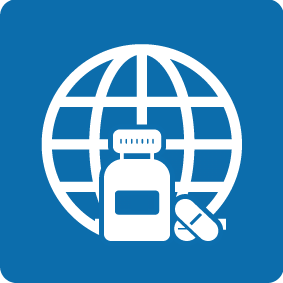
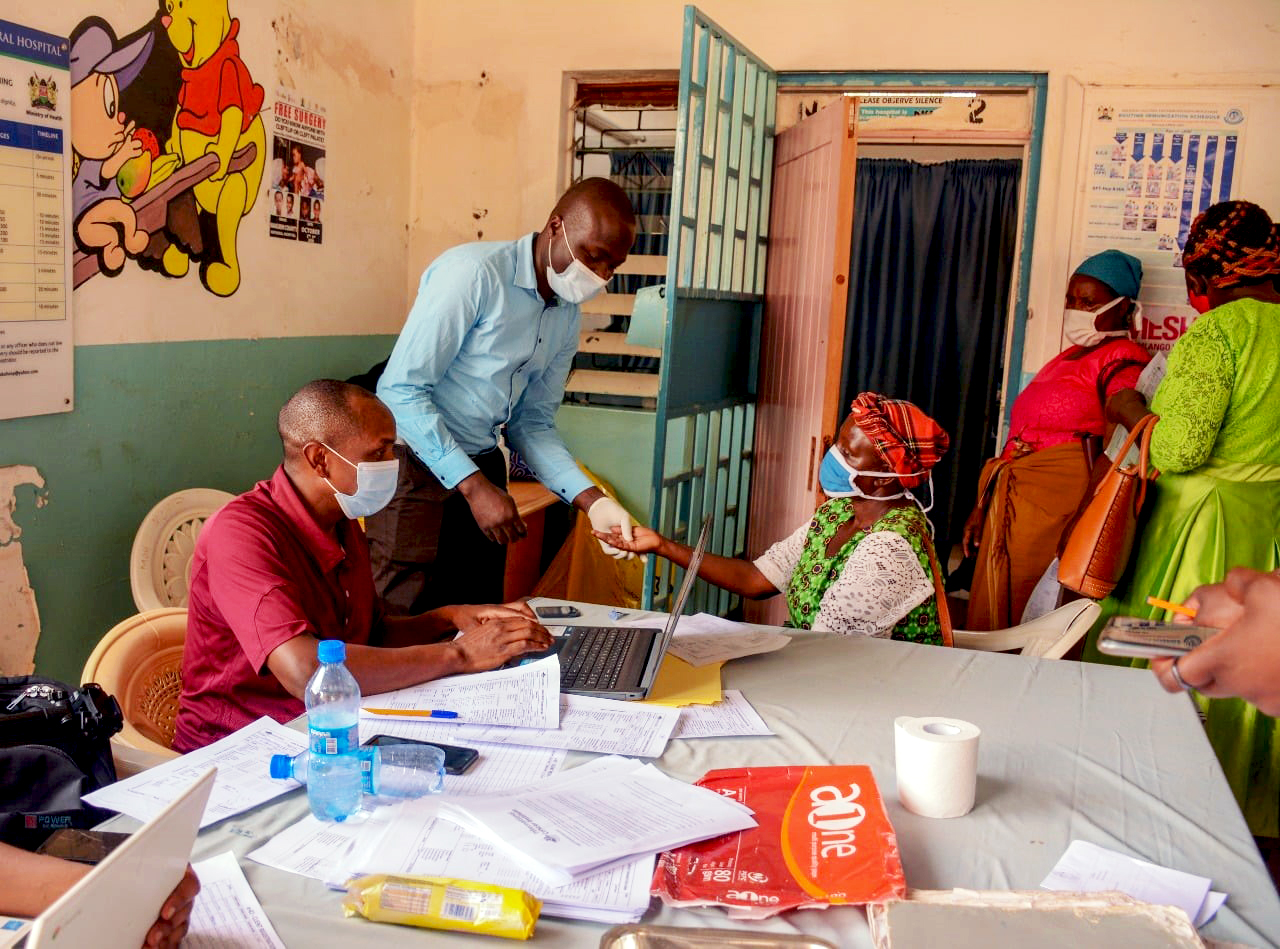
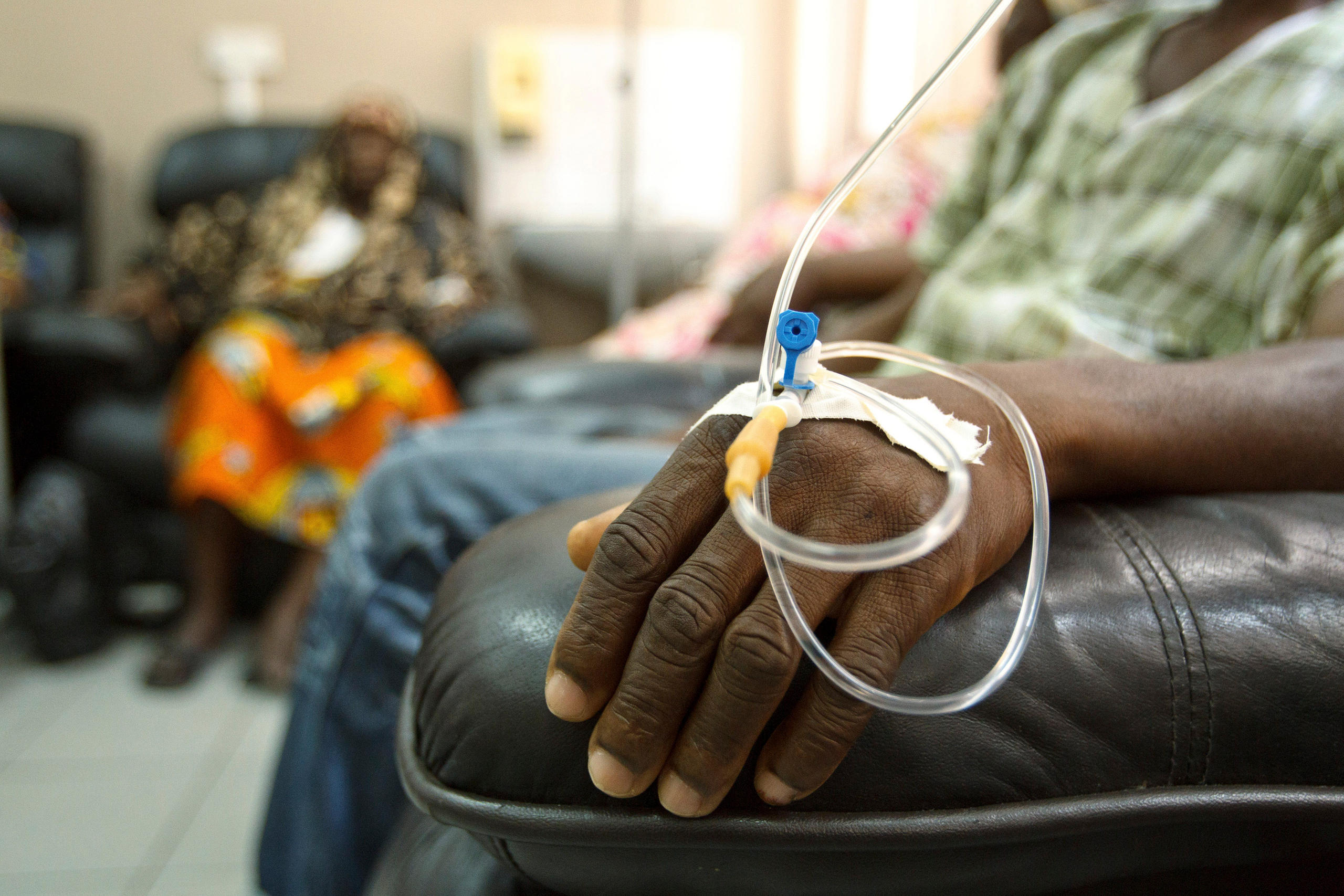

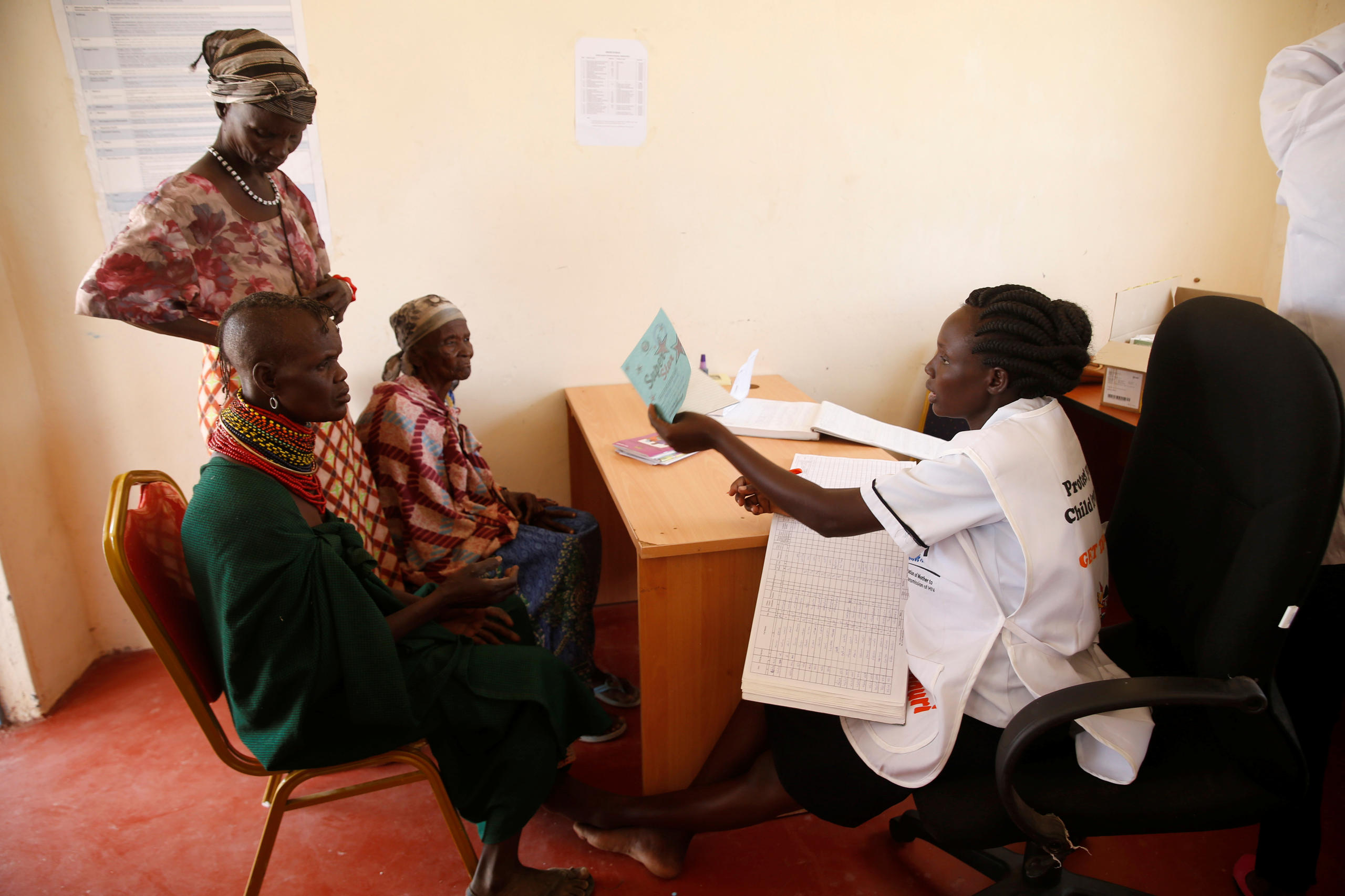
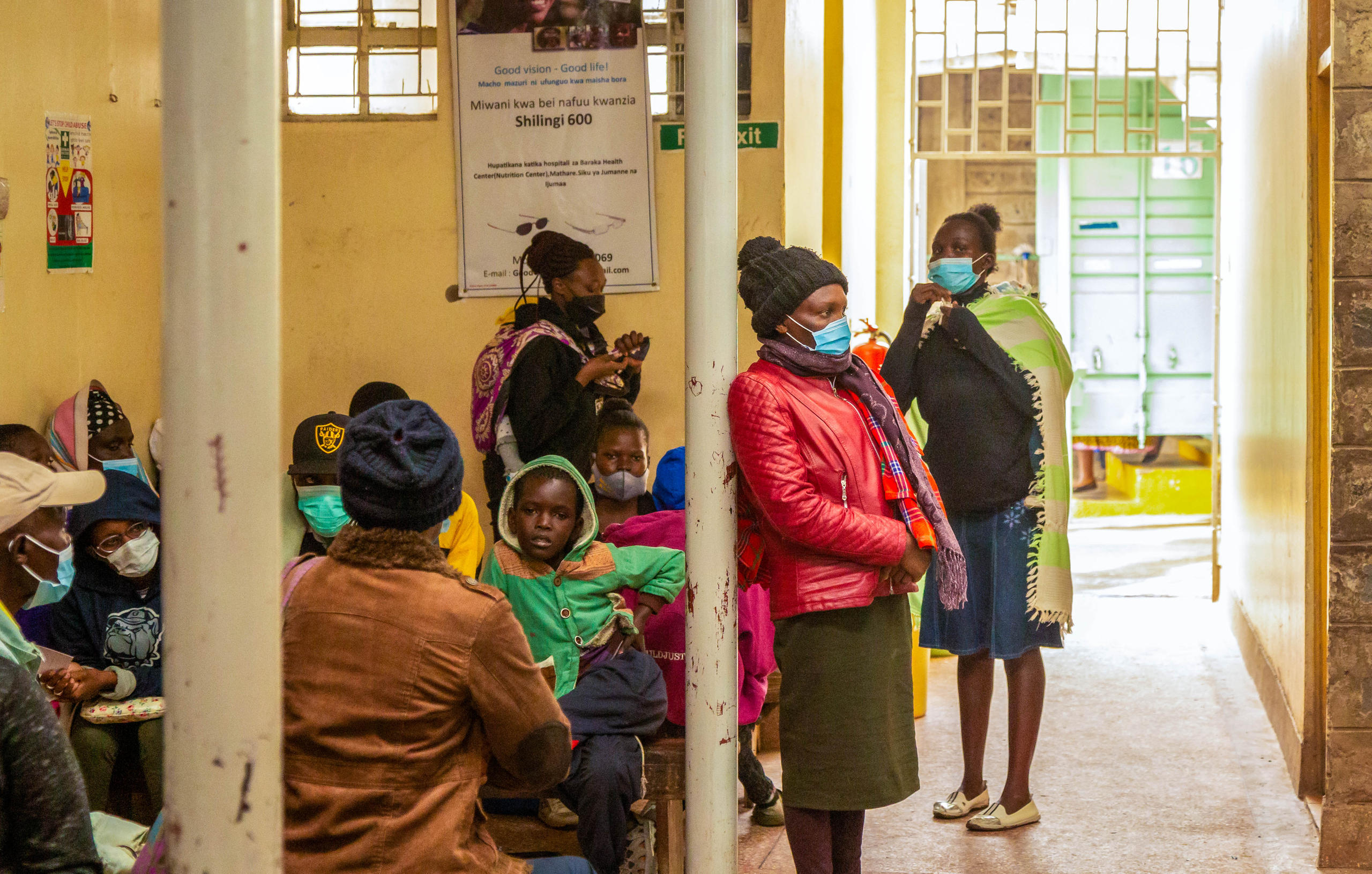
Join the conversation!